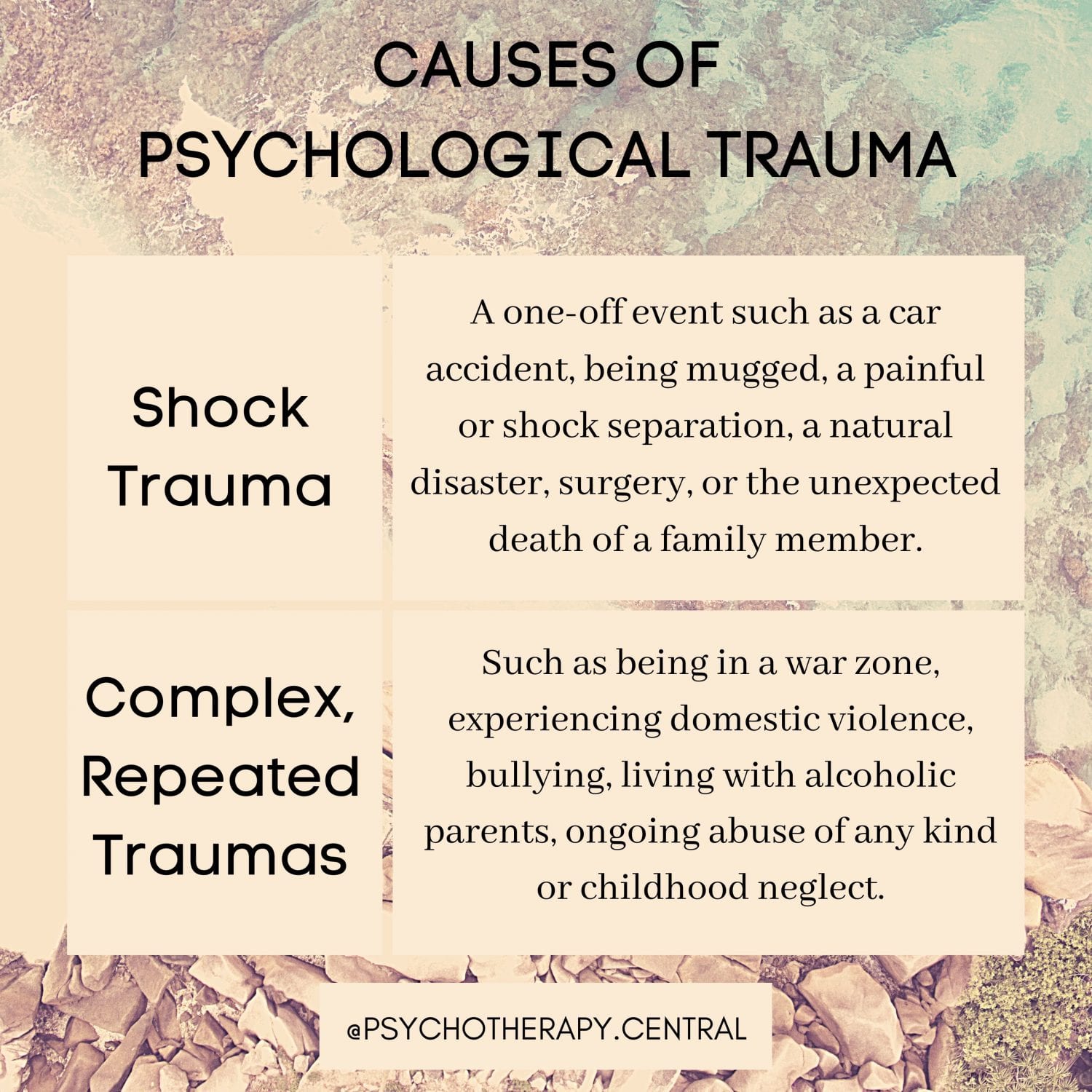You might be surprised to know there are different kinds of trauma. Our ability to recover from a trauma depends partly on the KIND of trauma we have experienced.
When we have experienced a shock trauma psychological distress in the form of emotional distress, anxiety, anger and sleep issues are common for two weeks after the event (PHOENIX, 2019). For some this develops into depression and what has been called PTSD.
With a shock trauma, because it was a one-off event, there is time after the shock to integrate what happened, to receive counselling or therapy, to be supported by friends and family to gradually return to a feeling of safety.
With complex trauma, there is no safety. The trauma is repeated regularly, it might come without warning, so we are always hypervigilant even when nothing stressful is occurring. Over time this has been shown to affect the brain, especially the prefrontal cortex, amygdala, and hippocampus.
We experience what I like to call ‘mini traumas’ throughout life. It can be interesting to observe how we respond to them. Do we:
- Bury the pain and move on, the heart a little more closed than before?
- Talk it out with friends and family to integrate the trauma into our life story?
- See a counsellor or therapist to receive some professional help?
I have, at different times, tried all of the above. I know for me, as a sensitive person, burying the pain is really difficult. In fact, it just does not work for me. I know others who are masterful at burying the pain. We all have different coping mechanisms that we have learnt as children to cope with the environment. As adults we need to consider what is healthiest for us long term.
Which of the three above have you used? Has it worked?
References
Terr, L. (1994). Unchained memories. New York, NY: Basic Books.
Phoenix Australia: Centre for Posttraumatic Mental Health. (2019). Australian guidelines for the treatment of acute stress disorder & posttraumatic stress disorder. Retrieved from https://www.phoenixaustralia.org/wp-content/uploads/2015/03/Phoenix-ASD-PTSD-Guidelines-Summary.pdf

